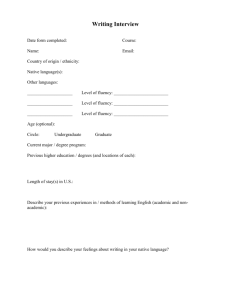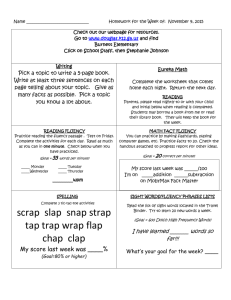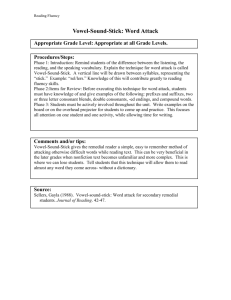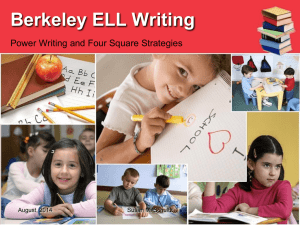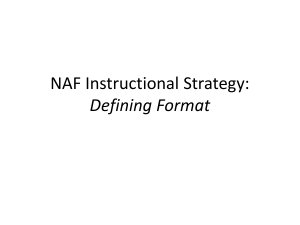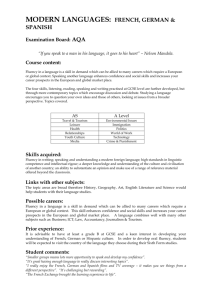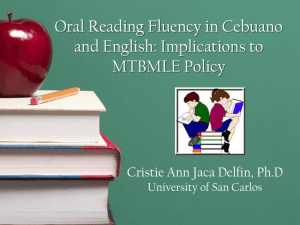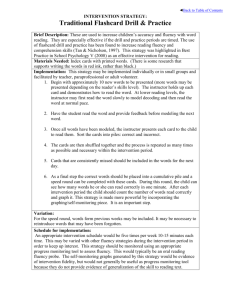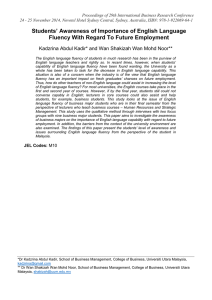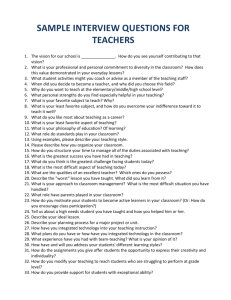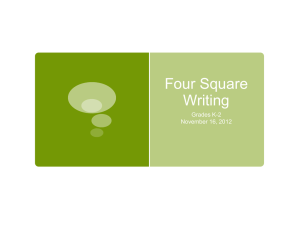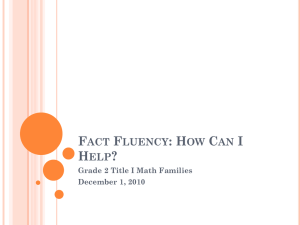Chapter23
advertisement
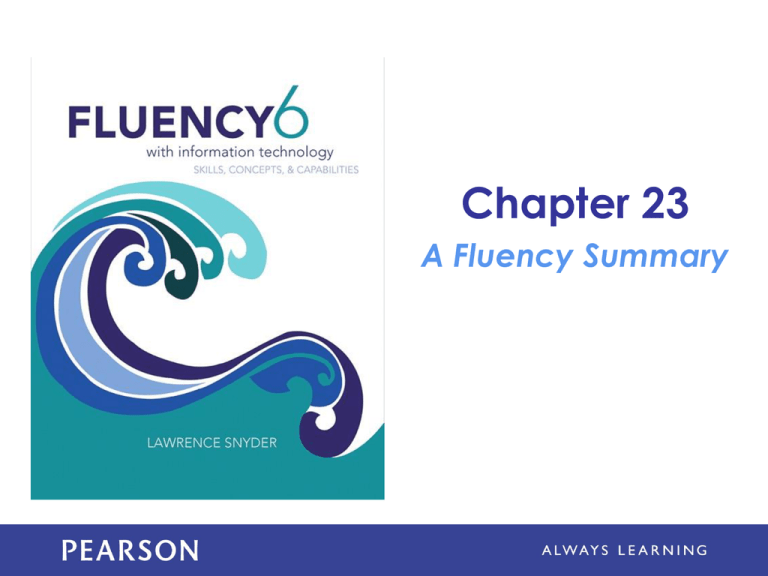
Chapter 23 A Fluency Summary Learning Objectives • Discuss how being Fluent affects your ability to remember IT details and ideas • Discuss lifelong IT learning through finding new uses, asking for help, and noticing new technology • Discuss the benefits of achieving Fluency now and in the future Information Structuring • Remember collections of information are structured hierarchically – Organized by descriptive metadata into groups and subgroups – Assists in locating specific items • Specifying structure is as essential as specifying content Information Structuring • Value of information depends on how effectively it can be used! • How will YOU collect and store YOUR digital information? – What will its structure be? – How will it be organized? – The computer won’t know the structure…but YOU will! Strategies for Nonalgorithmic Tasks • What guidelines will you have or use as you move forward? • What steps will you take for a rational approach to a task? • Precision and the directed application of logical reasoning can solve problems great and small, algorithmic and nonalgorithmic Fluency: Less is More • Fluency knowledge is compartmentalized into three components: 1. Skills—competency with contemporary IT applications like word processing 2. Concepts—understanding the foundations on which computing is built 3. Capabilities—facility with higher-level thinking processes like reasoning • These components co-equal and interdependent 1. Skills • The skills all require much detailed knowledge • The computer demands that we are exactly right; it is unforgiving! • We can’t use computers without knowing such facts, or researching about them 2. Concepts • The concepts might be quite detailed, but the “basic ideas” are not • Computing concepts are like other scientific information – Ideas must be explained in full to be understood; but after they’re learned, only the ideas themselves, not the particulars, are important for the non-specialist 3. Capabilities • The capabilities are the least detailed of all • Capabilities are mainly approaches to thinking • Capabilities require you to remember almost no detail whatsoever! Moving Forward… • Thinking abstractly about technology implies an adaptive approach to learning • Don’t memorize the tool’s details, learn details as you need them Lifelong IT Learning • Information technology learning is a process of lifelong learning • To learn computing throughout life requires three activities: 1. Pursue new IT uses that fulfill your personal needs 2. Be rational about asking for help 3. Notice new ideas and technology as they arise 1. Pursuing New Uses • Learning becomes easier the more you know • Learn IT on your own • When engaged in information processing tasks, determine whether you should use IT to help you 2. Asking for Help • You are becoming or have become a selfreliant computer and information user • But, we all still need expert help • You can troubleshoot some of your problems, but we may need assistance – If you figure it out, you’ve become more experienced at troubleshooting – If someone else helps, you may learn some new facts or skills 3. Noticing New Technology • To learn about and apply the upcoming advances requires YOUR attention – Is it real or just hype? • Be willing to learn about it • Adopt a technology as soon as there’s a high probability that it will assist you, but expect the technology to continue to improve Shifting for Yourself • Fluency enables us, the users, to shift gears • For technology users, the ability to manipulate the levers of IT is not an ability to deplore
